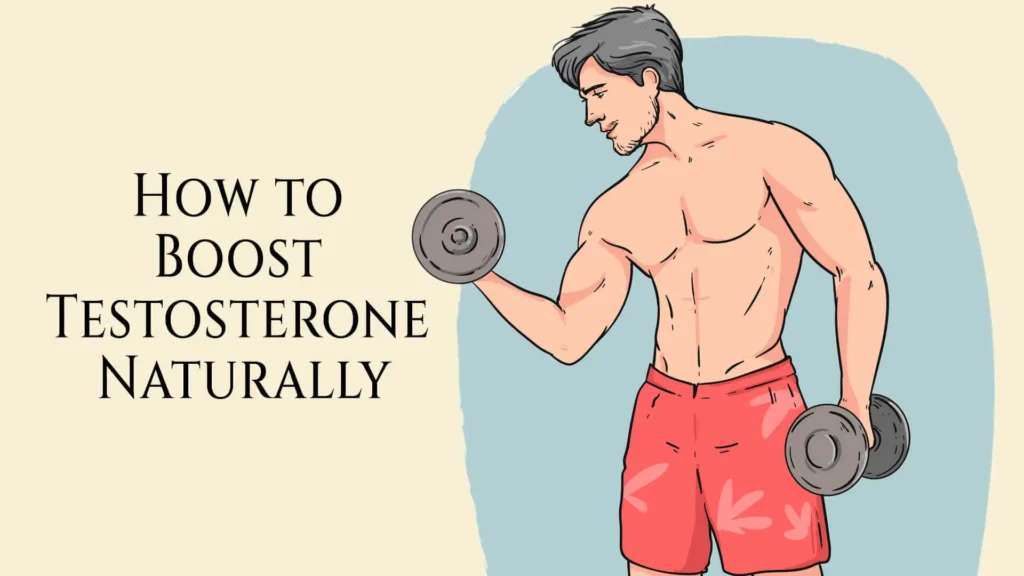
Testosterone is a crucial hormone that plays a significant role in muscle growth, fat loss, bone density, and overall health. As men age, testosterone levels tend to decline, leading to fatigue, reduced muscle mass, and lower libido. Fortunately, there are natural ways to effectively increase testosterone levels. Here is how you can do this.
1. Optimize Your Diet
a. Increase Healthy Fats
Healthy fats including testosterone are essential for hormone production. Sources of monounsaturated and saturated fats
Avocados
Nuts and seeds
Olive oil
Coconut oil
Fatty fish
Grass-fed meat
b. Consume Adequate Protein
Proteins help maintain muscle mass and support testosterone production. Good sources include:
Lean meats (chicken, beef, turkey)
Eggs
Fish
Dairy products
Plant-based proteins like lentils and chickpeas
c. Reduce Sugar and Processed Foods
Excess sugar and processed foods can contribute to insulin resistance, which negatively affects the testosterone levels. Avoid sugary beverages, refined carbohydrates, and fast food.
d. Eat Plenty of Micronutrient-Rich Foods
Nutrients, such as zinc, vitamin D, and magnesium, play a crucial role in testosterone production. Include foods like:
Oysters (high in zinc)
Spinach and pumpkin seeds (rich in magnesium)
Eggs and fatty fish (great sources of vitamin D)

2. Exercise Regularly
a. Strength Training
Resistance training, especially heavy compound exercise, has been proven to increase testosterone levels. Focus on exercises such as
Squats
Deadlifts
Bench press
Pull-ups
b. High-Intensity Interval Training (HIIT)
Short bursts of high-intensity exercise followed by rest periods can boost testosterone levels. A simple HIIT workout can include sprints, burpees, or jump squats.
c. Avoid Excessive Cardio
Although cardiovascular exercise is important for overall health, excessive endurance training can lower testosterone levels. Balance is key.
3. Improve Sleep Quality
Lack of sleep leads to an increase in cortisol levels, a stress hormone that negatively affects testosterone levels. Aim for 7-9 hours of quality sleep per night is as follows:
Maintaining a consistent sleep schedule
Reducing screen time before bed
Keeping your bedroom cool and dark
4. Manage Stress Effectively
Chronic stress increases cortisol levels, which suppresses testosterone production. Reduce stress through:
Meditation and deep breathing exercises
Engaging in hobbies
Spending time outdoors
Practicing yoga
5. Maintain a Healthy Weight
Obesity is linked to lower testosterone levels due to increased estrogen production from the fat tissue. To maintain a healthy weight.
Follow a balanced diet
Exercise regularly
Avoid excessive alcohol consumption
6. Reduce Alcohol and Drug Use
Excessive alcohol consumption and recreational drug use can negatively affect testosterone levels. Alcohol intake is limited and drugs that can disrupt hormonal balance are avoided.
7. Sunlight and Vitamin D Supplementation
Vitamin D is essential for testosterone production. Increase your level by
Getting regular sun exposure (20-30 minutes daily)
Consuming vitamin D-rich foods like salmon and egg yolks
Taking vitamin D supplements if necessary
8. Stay Hydrated
Dehydration can lead to increased cortisol levels, which in turn can lower testosterone levels. Drink enough water throughout the day to support the overall health and hormonal balance.
9. Consider Natural Supplements
Certain supplements may help increase testosterone levels naturally as follows:
Ashwagandha – Reduces stress and boosts testosterone levels
Fenugreek – Supports libido and testosterone production
Zinc and Magnesium – Essential for hormone production
D-Aspartic Acid – May help stimulate testosterone synthesis

Increasing testosterone levels naturally requires a combination of healthy lifestyle choices, including a nutritious diet, regular exercise, quality sleep, and stress management. By making these changes, you can optimize your testosterone levels, improve overall well-being, and maintain vitality as you age.